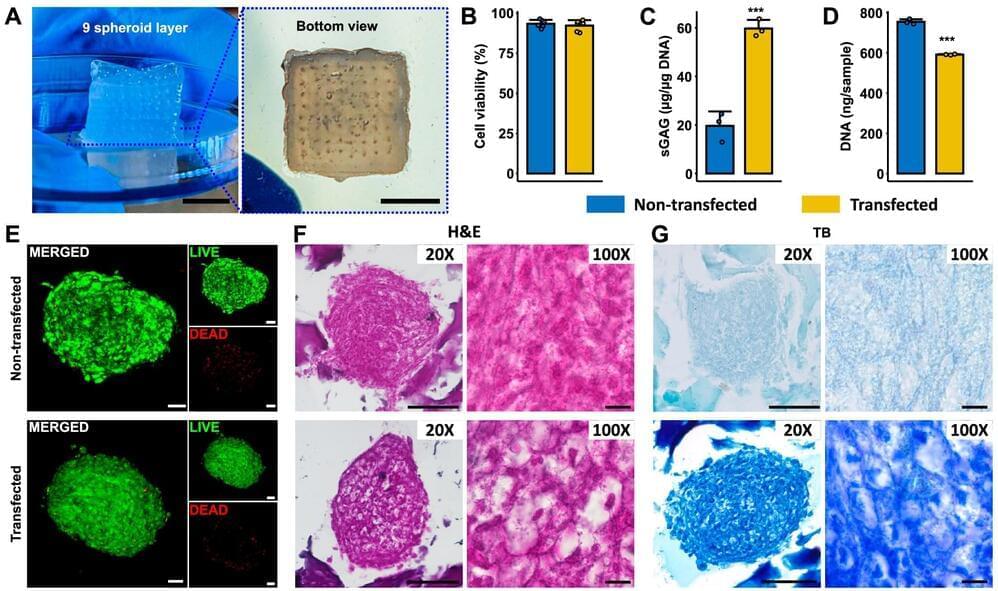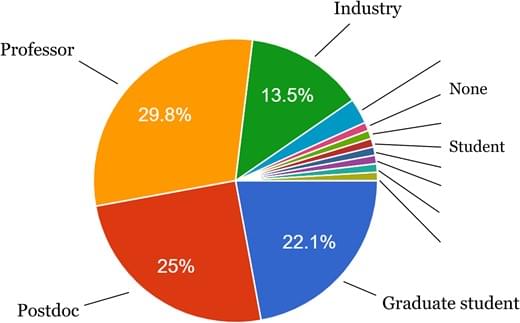Associate Professor, Associate Director of the Aging Research Program, and Co-Director of the Successful Aging and Frailty Evaluation Clinic in the.



By Sher Bahadur Poudel & Shoshana Yakar et al.
Several mouse lines with congenital growth hormone (GH)/insulin-like growth factor-1 (IGF-1) axis disruption have shown improved health and extended lifespan. The current study investigated how inactivating this axis, specifically during aging, impacts the healthspan. We used a tamoxifen-inducible global GH receptor (GHR) knockout mouse model starting at 12 months and followed the mice until 24 months of age (iGHRKO12–24 mice). We found sex-and tissue-specific effects, with some being pro-aging and others anti-aging. Measuring an array of cytokines in serum revealed that inactivation of the GH/IGF-1 axis at 12 months did not affect systemic inflammation during aging. On the other hand, hypothalamic inflammation was significantly reduced in iGHRKO12–24 mice, evidenced by GFAP+ (glial fibrillary acidic protein, a marker of astrocytes) and Iba-1+ (a marker for microglia). Liver RNAseq analysis indicated feminization of the male transcriptome, with significant changes in the expression of monooxygenase, sulfotransferase, and solute-carrier-transporter gene clusters. Finally, we found impaired bone morphology, more pronounced in male iGHRKO12–24 mice and correlated with GH/IGF-1 inactivation onset age. We conclude that inhibiting the GH/IGF-1 axis during aging only partially preserves the beneficial healthspan effects observed with congenital GH deficiency.
Inactivating the GH axis during aging has sex-and tissue-specific effects on healthspan. Deleting the GH receptor (GHR) in the entire body at 12 months of age led to feminizing the male liver transcriptome, significantly altering the expression of p450 and sulfotransferase gene clusters. While GHR deletion during aging did not impact systemic inflammation, it was linked to reduced hypothalamic inflammation. Additionally, we observed impaired bone morphology, particularly in male mice, which correlated with the age at which GH/IGF-1 inactivation began. Our findings suggest that inhibiting the GH axis during aging only partially maintains the beneficial healthspan effects seen with congenital GH deficiency.

Did you know the “probiotic” sodas Olipop and Poppi are both facing lawsuits for exaggerating their gut health claims? Jessica did a deep dive to discover which probiotics for longevity are *actually* scientifically backed:
Ignore the gut health hype & choose the best probiotics for longevity based on science– Microbial strains, capsule types & ingredients matter!

Three-dimensional (3D) printing isn’t just a way to produce material products quickly. It also offers researchers a way to develop replicas of human tissue that could be used to improve human health, such as building organs for transplantation, studying disease progression and screening new drugs. While researchers have made progress over the years, the field has been hampered by limited existing technologies unable to print tissues with high cell density at scale.
A team of researchers from Penn State have developed a novel bioprinting technique that uses spheroids, which are clusters of cells, to create complex tissue. This new technique improves the precision and scalability of tissue fabrication, producing tissue 10-times faster than existing methods. It further opens the door to developing functional tissues and organs and progress in the field of regenerative medicine, the researchers said.
They published their findings in Nature Communications.

Abstract. To gain insight into how researchers of aging perceive the process they study, we conducted a survey among experts in the field. While highlighting some common features of aging, the survey exposed broad disagreement on the foundational issues. What is aging? What causes it? When does it begin? What constitutes rejuvenation? Not only was there no consensus on these and other core questions, but none of the questions received a majority opinion—even regarding the need for consensus itself. Despite many researchers believing they understand aging, their understanding diverges considerably. Importantly, as different processes are labeled as “aging” by researchers, different experimental approaches are prioritized. The survey shed light on the need to better define which aging processes this field should target and what its goals are. It also allowed us to categorize contemporary views on aging and rejuvenation, revealing critical, yet largely unanswered, questions that appear disconnected from the current research focus. Finally, we discuss ways to address the disagreement, which we hope will ultimately aid progress in the field.

Inhibiting TLR7, an immune signaling protein, may help preserve the protective layer surrounding nerve fibers in the brain during both Alzheimer’s disease and ordinary aging, suggests a study led by researchers at Weill Cornell Medicine. The research is published in the journal Science.
Most nerve fibers in vertebrates are encased in sheaths made largely of myelin, a protein that protects the fibers and greatly enhances the efficiency of their signal conduction. The destruction of myelin sheaths—demyelination—can occur in the context of brain inflammation and can lead to cognitive, movement and other neurological problems. The phenomenon is seen in multiple sclerosis (MS), Alzheimer’s, Parkinson’s and other neurological conditions, as well as in ordinary aging.
Demyelination-linked disorders often show sex differences, and in the study, the researchers looked for underlying mechanisms of demyelination that might help explain these differences. Their experiments in mouse models of Alzheimer’s uncovered TLR7 as a driver of inflammatory demyelination especially in males, but also showed that removing or inhibiting this immune protein can protect against demyelination in both males and females.

THIS IS HUGE!! New study suggests that aging could be preventable, delayable and even reversible! A recent study published in Engineering proposes a new theory called pro aging metabolic reprogramming (PAMRP)
Aging is a complex process that has long puzzled scientists. A recent study published in Engineering proposes a new theory called pro-aging metabolic reprogramming (PAMRP), which could change our understanding of aging.
The traditional debate on aging has centered around whether it is a programmed process or a result of stochastic events. The PAMRP theory combines these two perspectives. It suggests that aging is driven by degenerative metabolic reprogramming over time. This involves both the buildup of pro-aging substrates (PASs) through metabolic changes and the emergence of pro-aging triggers (PATs). The combination of PASs and PATs leads to metabolic reprogramming, which in turn causes cellular and genetic reprogramming, ultimately resulting in the aging process.
Metabolism plays a crucial role in the PAMRP theory. As organisms age, there are significant changes in metabolic pathways, such as shifts in energy production and nutrient utilization. These changes initially serve as an adaptive mechanism but can become maladaptive over time, contributing to aging. The theory also distinguishes between different types of metabolic reprogramming, such as adaptive and adverse, and between regenerative and degenerative processes.
Join us on Patreon! https://www.patreon.com/MichaelLustgartenPhD
Discount Links/Affiliates:
Blood testing (where I get the majority of my labs): https://www.ultalabtests.com/partners/michaellustgarten.
At-Home Metabolomics: https://www.iollo.com?ref=michael-lustgarten.
Use Code: CONQUERAGING At Checkout.
Clearly Filtered Water Filter: https://get.aspr.app/SHoPY
Epigenetic, Telomere Testing: https://trudiagnostic.com/?irclickid=U-s3Ii2r7xyIU-LSYLyQdQ6…M0&irgwc=1
Use Code: CONQUERAGING
NAD+ Quantification: https://www.jinfiniti.com/intracellular-nad-test/

Read more in the comments and submit 📧at the link⬇️
#brainstimulation #brainfunction #deepbrainstimulation #memory #magneticstimulation #centralnervoussystem #agerelatedmemorydecline
Advances in Neurostimulation in Aging: From Basic Science to Clinical Applications
Guest Editors Dr. Orestis Stylianou and Dr. Gianluca Susi and Associate Editors Dr. Peter Mukli and Dr. Frigyes Samuel Racz and the editorial team of GeroScience (Official Journal of the American Aging Association, published by Springer) invite submission of original research articles and review articles related to basic and clinical research focused on neurostimulation in aging.
Over the past two decades, studies have shown the potential benefits of invasive and non-invasive brain stimulation techniques in addressing age-related alterations in brain function. While invasive techniques were previously dominant in small-scale clinical investigations, recent advances have significantly reduced the invasiveness of these techniques, making them safer and more accessible for research and medical applications. Transcranial current and magnetic stimulation (tCS and tMS) as well as deep brain stimulation (DBS) have shown promising results in improving various types of memory in the elderly population, including but not limited to working, episodic, associative, semantic, and procedural memory. These interventions have the potential to play a vital role in enhancing healthy brain aging and treating age-related pathological conditions affecting the central nervous system.